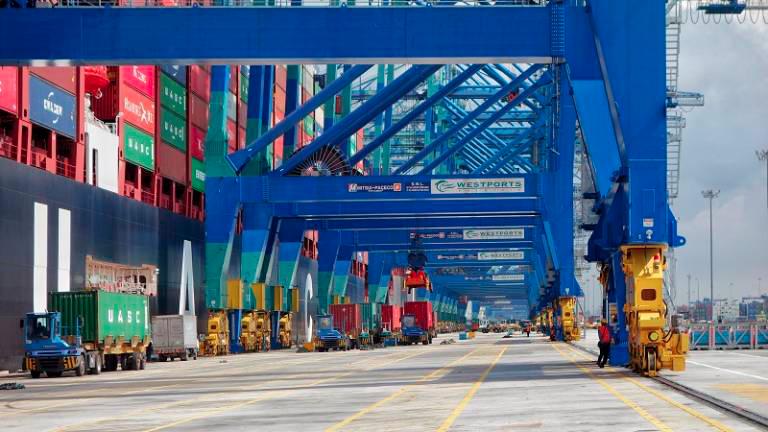KUALA LUMPUR: Westports Holdings Bhd registered a lower net profit of RM162.29 million in the second quarter ended June 30, 2022 (Q2FY22) from RM177.97 million in the same period last year due to higher fuel costs.
Revenue, however, was higher at RM510.98 million from RM505.07 million amid growth in the container revenue, according to its Bursa Malaysia filing on July 28.
Separately, in a statement, Westports said its container segment handled a throughput volume of 4.88 million twenty-foot equivalent units (TEUs) and accommodated a total of 3,820 vessels in the first half of this year.
The six-month period witnessed tumultuous global macroeconomic conditions, including a surge in global energy prices, widespread escalating inflationary pressures, interest rates increase, slipping economic momentum, and a military conflict in Ukraine.
These adverse challenges are being compounded on top of the unresolved supply chain constraints and pandemic-induced port closures at various points in time in the Far East.
Westports said the intensifying headwinds contributed to a reduction in the transhipment containers handled to 2.97 million TEUs.
“However, the local economy demonstrated better resilience, with overall gateway volume remaining near-identical at 1.91 million TEUs.
“In the conventional segment, the company moved 5.46 million tonnes of cargo,” said group managing director Datuk Ruben Emir Gnanalingam Abdullah.
He said the new Liquid Bulk Terminal 5 (LBT5) jetty has accommodated its first very large gas carriers, and subsequent to that, the first commercial liquefied petroleum gas (LPG) throughput was discharged into the recently built facilities.
The stored LPG at Pulau Indah caters for regional customers’ requirements, he said.
“As the shift towards cleaner energy input gathers momentum, Westports accommodated the biggest Swiss-based container liner’s first LNG Dual-Fuel ULCV (Ultra large container vessel) as the latter made its maiden call at Westports in April,” he added.
Going forward, Ruben said it is increasingly more challenging to maintain an identical container throughput in the current year amid the ongoing disruption in the supply chain, soaring inflation, zero covid policy in China and conflict in Europe that are not conducive to global economic growth. - Bernama















